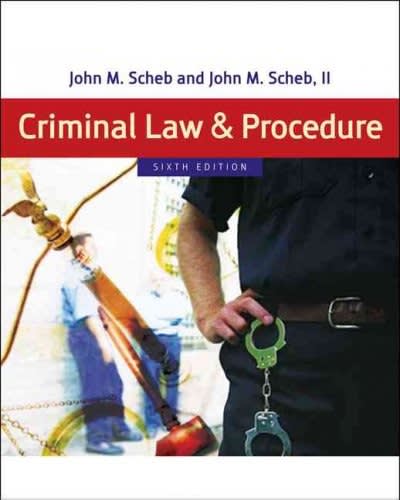In 1987 Douglas Deville was convicted in a state court for felonious possession of cocaine. He received
Question:
In 1987 Douglas Deville was convicted in a state court for felonious possession of cocaine. He received probation for that offense. Three years later, Deville was found guilty of another drug-related felony in the same state. For that offense, he served five years in state prison. Three months after being released from prison, Deville was arrested for possession of 100 grams of cocaine base and 400 grams of marijuana. This time the case was prosecuted in federal court, where Deville was convicted of felony possession with intent to distribute.
Because this was his third drug-related felony, Deville was sentenced to life imprisonment without parole under 21 U.S.C.A. § 841(b)(1)(A) (1994). On appeal, Deville claims that this sentence is “utterly disproportionate to his offense” and that, accordingly, it constitutes a violation of the Eighth Amendment’s Cruel and Unusual Punishment Clause. Deville is relying on the U.S.Supreme Court’s opinion in Solem v. Helm, 463 U.S. 277 (1983). Does Deville have a case? Is he likely to prevail? In your opinion, is Deville’s sentence fair and just? Is it constitutional?
Step by Step Answer:






